What does it truly mean to put “Nation First”? For most of us, the image of patriotism is painted with the courage of our armed forces, standing guard at the borders, braving every hardship for the safety of our motherland. But the spirit of India’s strength is not confined to the frontlines alone. It pulses in the everyday actions of ordinary citizens, in the quiet resolve to do what is right, and in the unwavering belief that every Indian can make a difference.
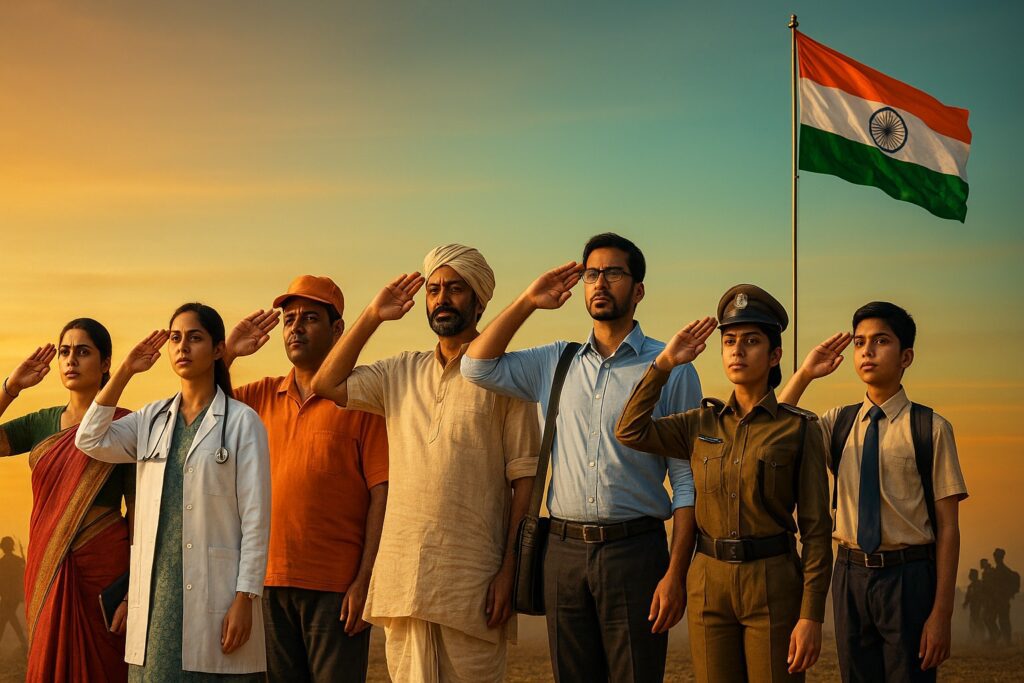
This blog is a heartfelt call to action-a reminder that the nation’s security, unity, and progress depend on each one of us. From protecting public property and reporting crimes to volunteering during disasters and supporting the families of our soldiers, there are countless ways how a civilian can contribute to nation. Every small act of honesty, every moment of vigilance, and every gesture of solidarity becomes a thread in the fabric of a resilient India.
As you read on, you’ll discover inspiring stories, practical steps, and legal insights that show how your everyday choices can echo the spirit of our armed forces. Let us embrace our shared responsibility, stand shoulder-to-shoulder with those who serve, and pledge-Nation First, Always First.
Table of Contents
How a Civilian Can Contribute to Nation? The Invisible Shield
National defence is not solely the domain of soldiers on the frontlines; it is a collective responsibility where every citizen plays a vital role. The concept of “total defence” recognizes that a resilient nation is built on the active participation of its civilians, who act as the invisible shield supporting and strengthening the armed forces.
Civilians contribute in numerous ways-by volunteering in organizations like Civil Defence, maintaining social harmony, reporting threats, and supporting disaster management efforts. The Civil Defence Act, 1968, and its subsequent amendments, empower ordinary citizens to participate in safeguarding the nation during emergencies, disasters, and even in peacetime. Civil Defence volunteers, numbering in the lakhs, are trained to protect lives, minimize property loss, and maintain public morale during crises. Their responsibilities have expanded from traditional wartime roles to include disaster management, reflecting the evolving nature of threats faced by the country.
Civilian infrastructure and resources are increasingly integrated into military logistics. For example, the Indian Army’s recent partnership with civil aviation providers ensures that remote border posts remain supplied during harsh winters, freeing up military assets for critical operations and boosting local economies. This civil-military synergy, supported by national programs like PM Gati Shakti, demonstrates how civilian and government collaboration is essential for national security and development.
Real-Life Examples of Civilian Contributions During Past Crises
- Civil Defence and Disaster Response: Civil Defence volunteers have been pivotal during natural disasters, such as floods and earthquakes, providing first aid, rescue, and relief operations. Their training and readiness have often made the difference between chaos and coordinated response.
- Community-Driven Resilience: Organizations like Mahila Housing Trust and the NDMA’s ‘Aapda Mitra’ program have empowered local communities-especially women-to lead disaster preparedness and response efforts. These community volunteers conduct risk assessments, run cooling centers during heatwaves, and ensure vulnerable populations are not left behind.
- Civil Services in Action: During the 2004 tsunami, Indian Administrative Service officers, supported by countless civil servants, coordinated massive relief and rehabilitation efforts in Tamil Nadu, earning international recognition for their effectiveness. Similarly, during the COVID-19 pandemic, states like Kerala and Karnataka mobilized hundreds of thousands of volunteers to run community kitchens, assist the elderly, and provide essential supplies, showcasing the power of organized civilian action.
- Civilian Support to Armed Forces: In a groundbreaking move, the Indian Army contracted civilian helicopters to supply remote border posts, ensuring uninterrupted logistics even in inaccessible terrain. This not only preserved military assets for emergencies but also fostered development and connectivity in frontier regions.
These examples underscore that the backbone of national resilience is formed by everyday citizens-volunteers, civil servants, and community leaders-who step up during crises. Their actions, often unsung, ensure that the nation stands united and prepared, truly embodying the spirit of “Nation First.”
Fulfilling Civic Duties
Patriotism is not just about waving the national flag or singing the anthem; it is about performing our everyday duties with honesty, responsibility, and pride. Every Indian citizen, regardless of profession or background, contributes to the nation’s strength and security by fulfilling basic civic duties. Here’s how:
Protecting Public Property: Why It Matters in Peace and War
Public property-roads, railways, government buildings, schools, parks, and utilities-belongs to all Indians. Protecting these assets is not just a matter of civic sense but a legal obligation under the Prevention of Damage to Public Property Act, 1984. Damaging public property, whether during protests or negligence, weakens the nation’s infrastructure and diverts resources away from development and defence.
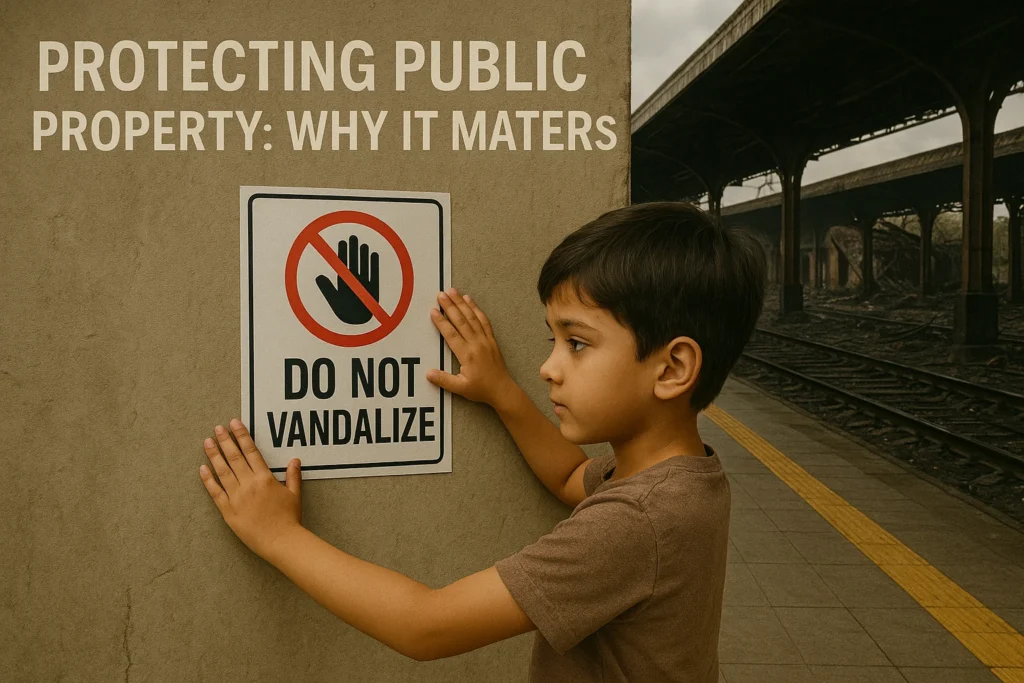
During times of conflict or crisis, public infrastructure becomes even more critical. Railways and highways are vital for troop movement and relief supplies. Hospitals and communication networks are lifelines for both civilians and armed forces. By safeguarding public property, citizens ensure that the nation remains prepared for any emergency.
Legal Perspective: Damaging public property is a punishable offence, attracting imprisonment and fines. Citizens are also empowered to report such acts to authorities, playing a direct role in upholding the law and national interest.
Social Harmony and Unity: The Foundation of a Strong Nation
India’s diversity is its greatest strength. Social harmony-respecting differences in religion, language, caste, and culture-creates a stable environment where everyone can thrive. The Constitution of India, through its Fundamental Duties (Article 51A), calls upon every citizen to promote harmony and the spirit of common brotherhood.
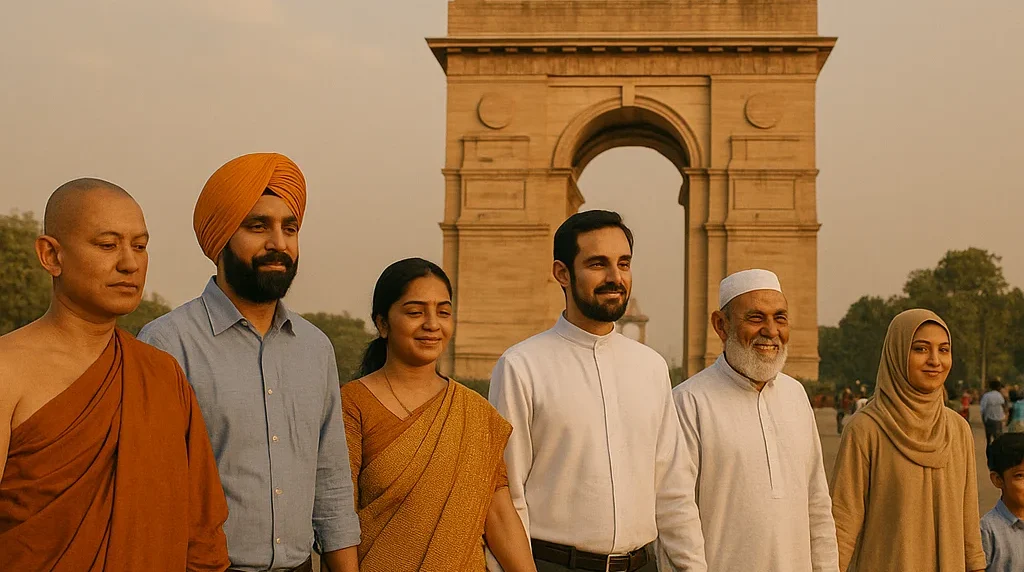
History shows that internal unity is the first line of defence against external threats. Divisions and communal tensions weaken the nation from within, making it vulnerable. By fostering mutual respect, resolving disputes peacefully, and standing against hate, citizens act as the true guardians of India’s unity.
Paying Taxes: Funding the Nation’s Security and Development
Taxes are the lifeblood of any nation. The money collected from income tax, GST, and other levies funds everything from roads and schools to defence and disaster relief. Every rupee paid in taxes strengthens the nation’s ability to respond to threats and invest in progress.
Legal Perspective: Under the Income Tax Act, 1961, it is mandatory for eligible citizens to file returns and pay taxes honestly. Tax evasion is not just a legal offence but a betrayal of national trust, as it deprives the country of resources needed for security and welfare.
Performing Duties with Integrity: The Unsung Heroes Behind the Scenes
Everyday integrity-whether in government offices, private companies, or public spaces-is the invisible force that keeps the nation moving. Honest teachers, doctors, engineers, sanitation workers, and countless others ensure that systems run smoothly and fairly. The Prevention of Corruption Act, 1988, and the Whistle Blowers Protection Act, 2014, encourage citizens to act with integrity and report wrongdoing without fear.
By doing their jobs with dedication and honesty, ordinary Indians become the unsung heroes who uphold the nation’s values. Their quiet patriotism is just as important as the sacrifices of soldiers on the border.
Everyday patriotism is about fulfilling civic duties with sincerity. By protecting public property, promoting unity, paying taxes, and working with integrity, every Indian stands shoulder-to-shoulder with the armed forces in building a strong, secure, and prosperous nation.
Joining Hands: Volunteering and Organized Support
Indian citizens have a proud tradition of standing shoulder-to-shoulder with the armed forces, not only in times of crisis but also through ongoing, organized support. Whether by joining auxiliary forces, training as disaster volunteers, or supporting welfare initiatives, every Indian can play a vital role in national security and resilience.
Territorial Army and Civil Defence: How to Join, Eligibility, and Roles
Territorial Army (TA):
The Territorial Army offers civilians a unique opportunity to serve the nation in a military capacity while continuing their regular employment.
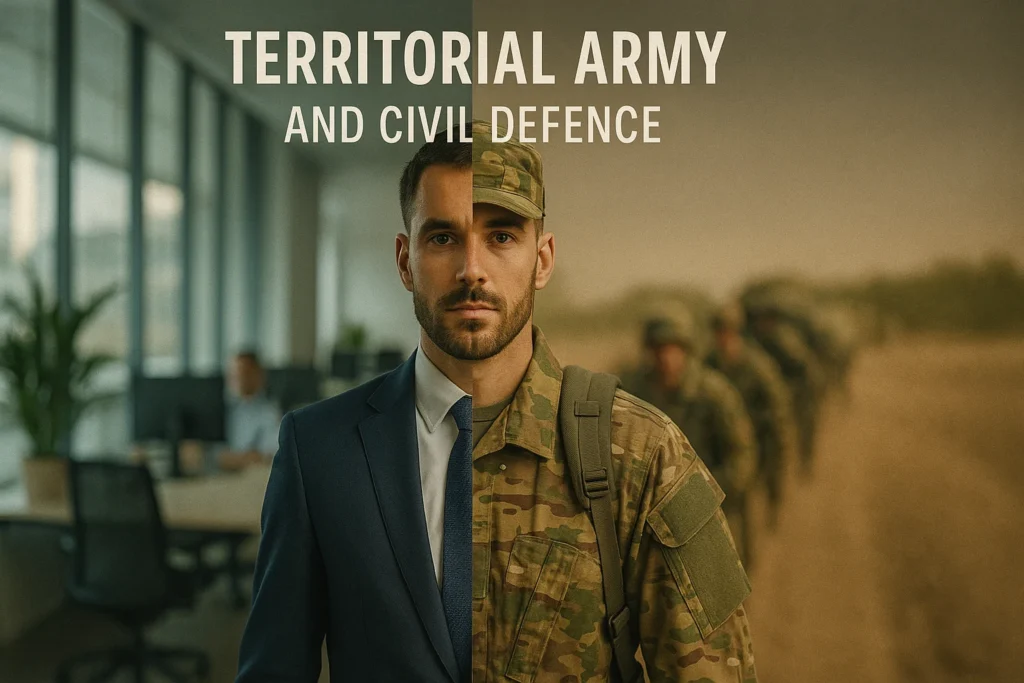
- Eligibility:
- Indian citizens (male and female)
- Age: 18 to 42 years
- Educational Qualification: Graduate from a recognized university
- Must be physically and medically fit
- Must be gainfully employed (in government, private sector, or self-employed)
- How to Join:
- Applications are submitted online through the official Territorial Army website during recruitment windows.
- The selection process includes a written exam, interview, and medical examination.
- Roles:
- TA personnel assist the regular Army in times of national emergency, natural disasters, and internal security duties, providing crucial support without leaving their civilian careers.
Civil Defence:
Civil Defence Corps is a voluntary organization that prepares citizens to respond to emergencies, from natural disasters to wartime contingencies.
- Eligibility:
- Indian citizens (as well as subjects of Bhutan or Nepal)
- Minimum age: 18 years
- Minimum education: Passed middle standard
- Both men and women are eligible
- Must be physically fit and mentally alert
- How to Join:
- Interested individuals can apply through their state or district Civil Defence offices.
- After enrollment, members undergo a seven-day basic training and receive an identity card upon successful completion.
- Roles:
- Civil Defence volunteers assist in rescue, relief, first aid, and maintaining public order during emergencies. Their service is typically voluntary for three years, with possible extensions.
Disaster Relief and Community Preparedness: Training, NGOs, and Opportunities
India’s vulnerability to natural disasters has led to robust community-based disaster response initiatives. The Aapda Mitra scheme, run by the National Disaster Management Authority (NDMA), trains community volunteers in life-saving skills, flood relief, rescue, and coordination.
- Aapda Mitra Programme:
- Volunteers are trained in disaster response, first aid, and rescue operations, especially in flood-prone districts.
- The scheme is expanding to cover 350 districts, aiming to train 100,000 volunteers across India.
- Training is conducted through empanelled institutions, and volunteers are equipped with emergency responder kits.
- NGO and Community Opportunities:
- Numerous NGOs, such as the Mahila Housing Trust and Saviour Foundation, offer disaster preparedness, relief, and welfare programs.
- Citizens can participate in awareness drives, distribute relief materials, and support vulnerable communities during crises.
Supporting Armed Forces Welfare: Organizations, Donations, and Volunteering
Supporting the welfare of armed forces personnel and their families is a noble and impactful way to serve the nation. Several government and non-government organizations facilitate this:
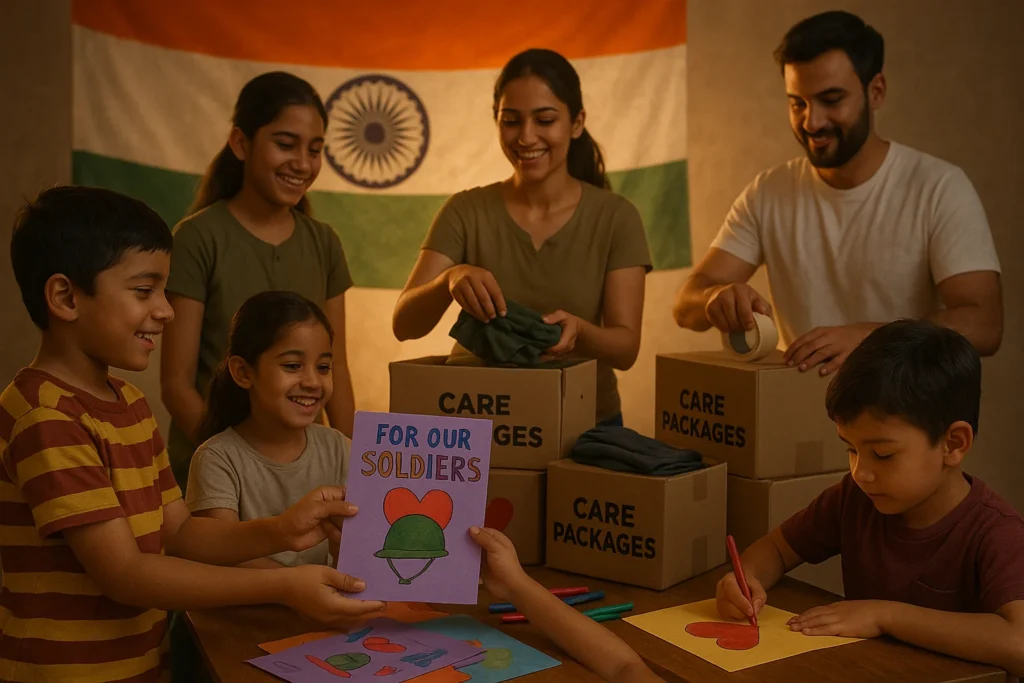
- National Defence Fund (NDF):
- Managed by the Prime Minister’s Office, the NDF accepts voluntary donations for the welfare of armed forces and their dependents. Donations can be made online via the NDF website, PM India portals, or through designated bank accounts.
- The fund supports scholarships for children of ex-servicemen, grants for welfare activities, and financial assistance for bereaved families.
- Armed Forces Battle Casualties Welfare Fund:
- Direct contributions support the families of battle casualties. Donations can be made through Canara Bank or the National War Memorial’s website.
- Army Central Welfare Fund:
- Contributions go towards the welfare of serving and retired Army personnel and their families. Donations can be made directly to the fund’s bank account.
- NGOs and Welfare Organizations:
- Organizations like the Saviour Foundation, Raksha Welfare Organization (RWO), and Armed Forces Welfare Housing Organisation (AFWHO) provide financial aid, housing, education, and vocational training to soldiers, veterans, and their families.
- Many NGOs focus on empowering the spouses and children of armed forces personnel, ensuring their social and economic well-being.
- How to Volunteer or Donate:
- Visit the official websites of these organizations for details on volunteering opportunities and donation procedures.
- Contributions, whether monetary or through service, are recognized as acts of national solidarity and support.
Every Indian civilian can play a meaningful role in national defence-by joining auxiliary forces, training for disaster response, or supporting the welfare of those who serve on the frontlines. These organized avenues ensure that the spirit of “Nation First” is not just a slogan, but a lived reality for millions.
How a Civilian Can Contribute to Nation by Reporting Crimes and Scams
Why Reporting Crimes is a Patriotic Duty
Reporting crimes is one of the most direct ways in which a civilian can contribute to nation-building and public safety. When citizens step forward to report wrongdoing, they help maintain the rule of law, deter criminal activity, and protect their communities. This sense of vigilance is not just a civic responsibility but a patriotic act, reinforcing the nation’s security and integrity.

Legal Process to Report Crimes: Empowering Every Citizen
How to File an FIR (First Information Report)
Filing an FIR is the first step for any cognizable offence. Under Section 154 of the Code of Criminal Procedure (CrPC), any person-not just the victim-can approach the nearest police station to file an FIR. The police are legally bound to register it and provide a free copy to the complainant. If the police refuse, citizens can escalate the matter to higher authorities or approach the Judicial Magistrate for redressal.
Reporting Cybercrimes and Scams
With the increase in digital fraud, the Government of India has established the National Cyber Crime Reporting Portal (cybercrime.gov.in), where anyone can report online scams, identity theft, and financial frauds. For telecom-related frauds, citizens can use the Sanchar Saathi portal to report suspicious communications and protect themselves and others from cybercrime attempts.
Whistleblower Protections and Anonymous Reporting
The Whistle Blowers Protection Act, 2014, offers legal safeguards to those exposing corruption or abuse of power in government and public sector organizations. This law ensures confidentiality and shields whistleblowers from retaliation, making it safer for individuals to report wrongdoing. Anonymous reporting channels are also available, making it easier for a civilian to contribute to nation by exposing corruption without fear.
Contacting Authorities: Police, Anti-Corruption Bureau, and Security Agencies
Citizens can approach:
- Local Police: For general crimes and emergencies.
- Anti-Corruption Bureau (ACB): For bribery and corruption complaints.
- National Security Agencies: For threats involving terrorism or national security.
Real-Life Case Studies: Civilians Who Made a Difference
- Corporate Whistleblower at ICICI Bank:
In 2016, Arvind Gupta, a shareholder activist, exposed a conflict of interest involving ICICI Bank’s CEO Chanda Kochhar and the Videocon group. His whistleblower complaint led to investigations by the Enforcement Directorate (ED) and Central Bureau of Investigation (CBI), resulting in Kochhar’s exit and corruption charges. Gupta’s actions sparked a movement for greater transparency and accountability in India’s corporate sector, showing how a civilian can contribute to nation by standing up against corruption. - Digital Arrest Scams:
In Hyderabad, a 79-year-old retired consultant lost Rs 2 crore to fraudsters impersonating police officers, who threatened him with a fake digital arrest warrant. Similarly, an 85-year-old woman was duped of Rs 5.9 crore by scammers posing as cybercrime officials. Both cases were reported to the authorities, highlighting the importance of vigilance and timely reporting to prevent further victimization and help law enforcement track down criminals.
These examples demonstrate that when ordinary people take action-whether by reporting crimes, exposing scams, or standing up against corruption-they become guardians of the law. This is a powerful way in which a civilian can contribute to nation and ensure a safer, more just India for all.
How a Civilian Can Contribute to Nation through Informed Engagement in promoting Civil Military Understanding
A well-informed citizenry is fundamental to a strong democracy and effective national security. One of the most meaningful ways how a civilian can contribute to nation is by understanding the vital relationship between civil society and the armed forces. Civil-military relations are not just about command structures or defence policies-they are about shared values, mutual respect, and the collective pursuit of national goals.
In India, the complexity of security challenges demands that civilians, political leaders, bureaucrats, and the military all work in synergy. Historically, gaps in civilian knowledge about military affairs have hindered optimal decision-making and integration. When citizens are informed about the roles, challenges, and sacrifices of the armed forces, they can better appreciate policy decisions, participate in meaningful debate, and hold leaders accountable. This informed engagement leads to superior strategies and a more resilient nation.
Participating in Seminars, Awareness Campaigns, and Public Discourse
Active participation in seminars, awareness campaigns, and public discussions is another key example of how a civilian can contribute to nation. These forums bridge the knowledge gap between the military and the general public, encouraging dialogue on national security, defence technology, and civil-military integration.
- Seminars and Public Forums: Institutions like the Institute for Defence Studies and Analyses (IDSA) and think tanks regularly organize seminars where civilians, academics, military officials, and policymakers discuss defence issues and the future of civil-military relations. Such events foster a culture of learning and mutual respect.
- Awareness Campaigns: National campaigns-both online and offline-educate the public on the importance of civil-military cooperation. These initiatives often address topics such as disaster response, veterans’ welfare, and the significance of military service in a democracy.
- Public Discourse and Education: Encouraging discussions in schools, colleges, and community groups about India’s military history, strategic culture, and current security challenges helps cultivate a generation that values and understands the armed forces. This also includes integrating military studies into academic curricula and promoting defence journalism.
- Policy Advocacy: Civilians can participate in public consultations and policy advocacy, ensuring that defence policies reflect the aspirations and concerns of the broader society. This engagement can lead to the creation of specialized services and institutional mechanisms that further integrate civilian expertise into defence planning.
By staying informed, engaging in dialogue, and participating in national conversations, every Indian can help bridge the civil-military divide. This is not only a form of responsible citizenship but a powerful way how a civilian can contribute to nation’s unity, security, and progress.
The Call of Duty for Every Indian
Nation First, Always First
At the heart of a strong and secure India lies the unwavering spirit of its citizens. “Nation First, Always First” is not just a slogan-it is a way of life, a daily commitment to the greater good. Every Indian, regardless of age, background, or profession, has a vital role to play in shaping the nation’s destiny. This is how a civilian can contribute to nation: by embracing responsibility, acting with integrity, and putting collective well-being above individual gain.
How Small Actions Create a Big Impact
History and experience show that even the smallest acts of responsible citizenship can ripple outward, creating lasting change. Simple steps-like protecting public property, conserving water, reporting wrongdoing, or supporting a local cause-collectively strengthen the nation’s foundation. For example, when citizens adopt sustainable practices, such as waste management or water harvesting, they directly contribute to India’s progress on sustainable development goals. When communities come together to support the vulnerable or stand against corruption, they reinforce the values of unity and justice.
India’s journey toward inclusive growth and sustainable progress has been built on millions of such everyday contributions. Whether it’s volunteering during a crisis, paying taxes honestly, or simply being vigilant against scams, these actions demonstrate how a civilian can contribute to nation in meaningful ways, often inspiring others to do the same.
Lets take a Pledge of Responsible Citizenship
The call of duty is clear: each one of us must pledge to uphold the values of honesty, integrity, and service to the nation. Initiatives like the MyGov Pledge Platform encourage citizens to formally commit to causes ranging from environmental protection to anti-corruption and women’s empowerment. The Integrity Pledge, promoted by various government agencies, reminds us that eradicating corruption and upholding the rule of law is a shared responsibility.
“I pledge to put the nation first in all my actions, to act with honesty and integrity, to respect the rights and dignity of all, and to contribute-however I can-to the progress and security of India.”
By taking such pledges and living by them, every Indian can help build a more resilient, just, and prosperous country. The path to a stronger nation is paved with countless small acts of patriotism-each one a testament to how a civilian can contribute to nation, today and for generations to come.
Resources and Helplines
Below is a curated list we prepared of important contacts, official websites, and organizations that empower you to report crimes, volunteer, and donate. Using these resources is a practical example of how a civilian can contribute to nation by staying vigilant, supporting those in need, and strengthening national security.
Emergency and Crime Reporting
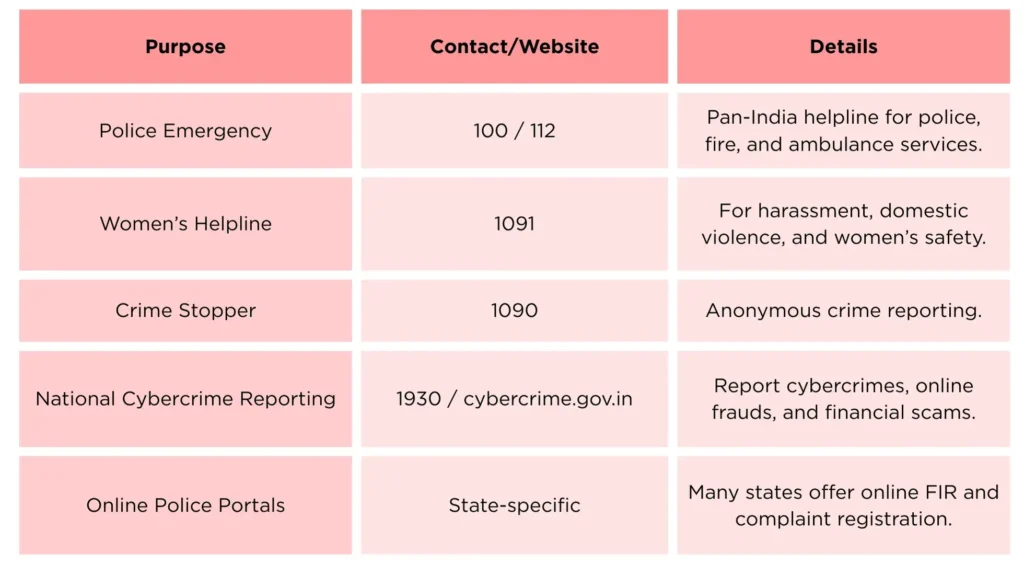
Volunteering and Community Support Helplines
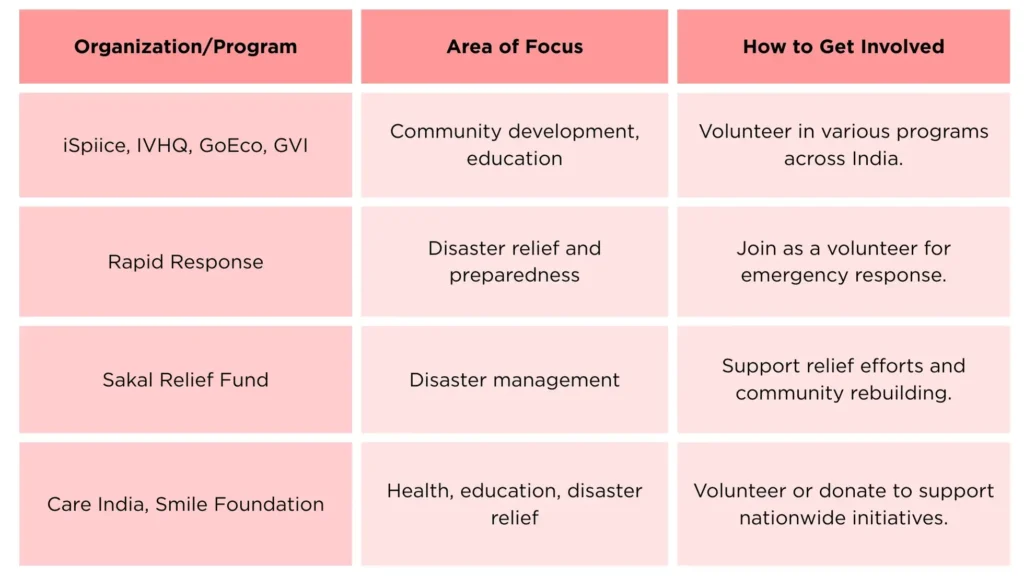
Helpline number for Donations to Armed Forces and Disaster Relief
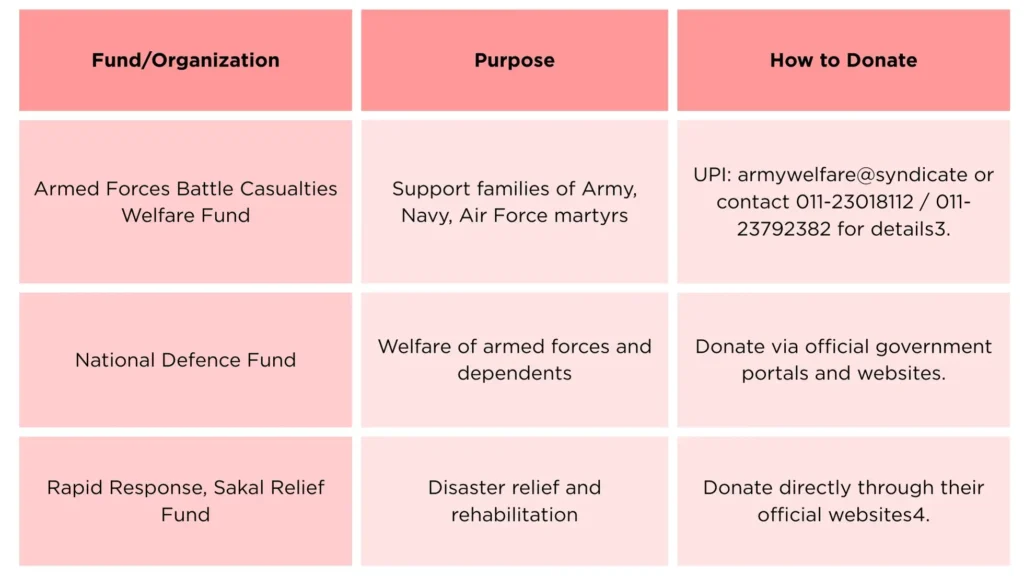
Additional Resources
- National Cyber Crime Reporting Portal: [cybercrime.gov.in]
Report all types of cybercrime, including financial fraud, identity theft, and harassment. - Helpline 1930:
For immediate reporting of financial cyber frauds. - Crime Stopper Helpline 1090:
For anonymous reporting of crimes. - Pan-India Emergency Helpline 112:
For any police, fire, or medical emergency. - Women’s Helpline 1091:
For crimes against women, including harassment and domestic violence. - Volunteer Programs:
Explore opportunities with reputable organizations like iSpiice, IVHQ, GoEco, Rapid Response, Care India, and Smile Foundation to make a real difference in communities across India.
By using these resources, every Indian can take meaningful steps in how a civilian can contribute to nation-whether by reporting a crime, volunteering in a time of need, or supporting the families of those who serve. Your action today strengthens the nation’s resilience and unity for tomorrow.
[…] Even in the toughest times, how a civilian can contribute to nation becomes more important than ever. Whether it’s staying alert and reporting suspicious activity, volunteering for relief efforts, supporting the families of our armed forces, or simply promoting unity and fulfilling civic duties-every action counts. Want more practical ways to make a difference? Explore our in-depth blog on this very topic and discover how you can stand shoulder-to-shoulder with India’s heroes. […]
A truly inspiring blog. It beautifully highlights how every civilian can play a vital role in nation-building through small yet impactful actions. As a proud citizen, I wholeheartedly agree that serving the nation isn’t limited to uniforms; it’s a duty and honor we all share. Jai Hind 🇮🇳
Thank you very much Suparna hope this blog helps, keep reading and supporting…
[…] To join as a Civil Defence Volunteer is to answer the nation’s call for courage, compassion, and community service. It’s about being ready when your country needs you, about learning, growing, and leading with pride. It’s moral responsibility of every citizen to understand How a Civilian Can Contribute to Nation? […]
[…] So, can I join the Indian Army for wartime through non-traditional or direct recruitment? The answer is yes, but it means seizing targeted, timely opportunities like these special drives-or finding ways to serve as a vital support volunteer if you don’t meet Army criteria. Beyond the battlefield, every citizen has a role to play in strengthening the nation’s resolve and resilience. […]
I have been exploring for a little for any high quality articles or blog posts in this sort of area . Exploring in Yahoo I finally stumbled upon this web site. Reading this information So i am satisfied to express that I have a very excellent uncanny feeling I discovered exactly what I needed. I so much for sure will make sure to do not put out of your mind this web site and give it a look regularly.
Great article. It is very unfortunate that over the last one decade, the travel industry has had to deal with terrorism, SARS, tsunamis, influenza, swine flu, plus the first ever true global economic depression. Through all this the industry has really proven to be sturdy, resilient as well as dynamic, discovering new tips on how to deal with hardship. There are often fresh challenges and opportunity to which the market must once again adapt and behave.
This is my first time pay a visit at here and i am really pleassant to read all at single place.